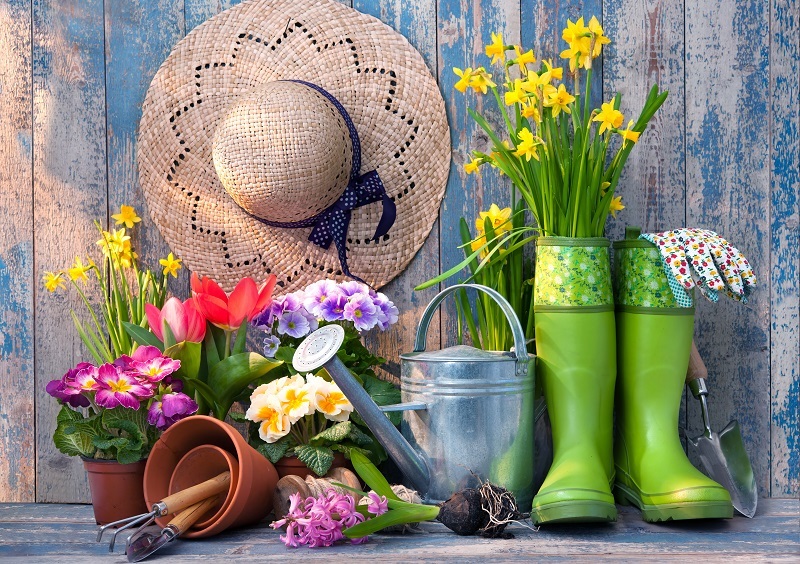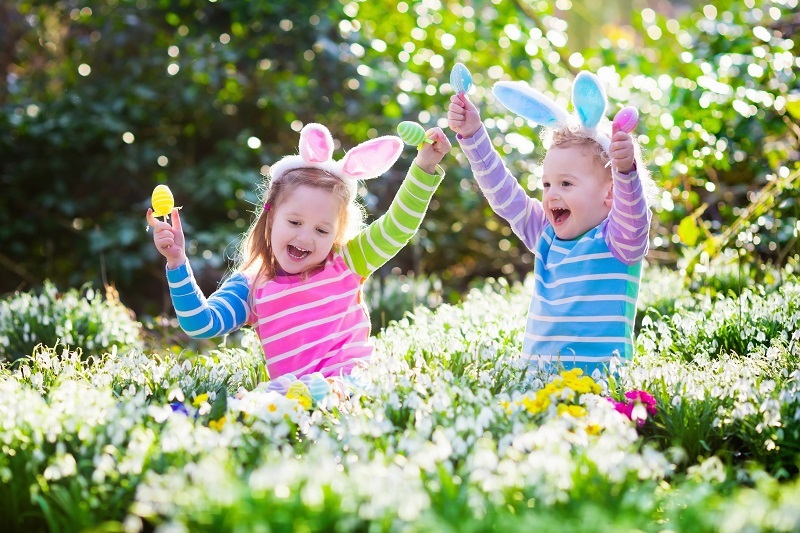Uncovering the Deeper Meanings of Your Birth Flower
Posted on 28/08/2025
Uncovering the Deeper Meanings of Your Birth Flower
Did you know that each month of the year has a unique flower associated with it, much like birthstones? These floral symbols are more than just ornamental--they carry rich stories, symbolism, and cultural significance. In this comprehensive guide, we delve into uncovering the deeper meanings of your birth flower, exploring history, traditions, and personal connections to help you better understand your unique floral symbol.

What Is a Birth Flower?
Birth flowers are blossoms traditionally associated with each month of the year. Just as birthstones are believed to hold special powers and meanings, birth flowers represent qualities and characteristics connected to the month in which a person is born. Learning about your birth flower's symbolism can offer insight into your personality, heritage, and potential life path.
- January: Carnation
- February: Violet
- March: Daffodil
- April: Daisy
- May: Lily of the valley
- June: Rose
- July: Larkspur
- August: Gladiolus
- September: Aster
- October: Marigold
- November: Chrysanthemum
- December: Narcissus
Understanding and celebrating the significance behind your own birth flower can deepen your connection to nature, family traditions, and even to yourself. But how do these meanings arise? That journey begins with the origins of the birth flower tradition.
The Origins and History of Birth Flowers
The tradition of birth flowers dates back centuries and is woven into the fabric of different cultures worldwide. In the Victorian era, people often communicated unspoken emotions through flowers--a subtle language known as floriography. Each blossom had a coded meaning, allowing individuals to express feelings they couldn't voice aloud. Over time, these associations became more formalized, and specific flowers became tied to each month.
Floriography: The Secret Language of Flowers
During the 19th century, floriography gained immense popularity in England and the United States. People would craft elaborate bouquets to send secret messages. For instance, red roses meant "I love you," while a yellow carnation signaled disappointment.
Today, uncovering the deeper meanings of your birth month flower can add a layer of appreciation to both historical customs and modern gifting traditions.
Birth Flowers by Month: Symbolism, History, and Personality Insights
January: Carnation
- Symbolism: Admiration, love, distinction
- Historical Uses: Used for ceremonial crowns in ancient Greece
- Personality Traits: Loyal, trustworthy, and full of love
The carnation, the birth flower for January, radiates warmth and affection even during the coldest time of the year. Carnations symbolize new beginnings, making them a perfect match for those born at the year's start.
February: Violet
- Symbolism: Faithfulness, humility, modesty
- Historical Uses: Ancient violets were used in love potions and medicines
- Personality Traits: Wise, humble, sincere
The violet is a small but mighty flower associated with deep spiritual wisdom and loyalty. Its modest beauty reminds us of the value of sincerity and humility.
March: Daffodil
- Symbolism: Hope, new beginnings, prosperity
- Historical Uses: In many cultures, daffodils are gifted as a symbol of rebirth
- Personality Traits: Optimistic, energetic, hopeful
The cheerful daffodil is one of the first signs of spring, embodying a sense of renewal and joy. March-born individuals often reflect that same hopeful energy.
April: Daisy
- Symbolism: Innocence, purity, joy
- Historical Uses: Daisies were sacred to the Norse goddess Freya
- Personality Traits: Cheerful, friendly, optimistic
The daisy represents childlike innocence and a fresh start. April births are often associated with a joyful and approachable demeanor.
May: Lily of the Valley
- Symbolism: Sweetness, humility, purity
- Historical Uses: Featured in bridal bouquets for good luck
- Personality Traits: Gentle, considerate, nurturing
May's lily of the valley is delicate yet fragrant, embodying humility and a caring nature. It is believed to bring happiness and good fortune.
June: Rose
- Symbolism: Love, passion, beauty
- Historical Uses: Central to ancient myths and romantic poetry
- Personality Traits: Passionate, loving, charismatic
The rose is perhaps the most iconic birth flower, offering a spectrum of colors and meanings. June-born individuals are often seen as loving and emotionally expressive.
July: Larkspur
- Symbolism: Lightness, positivity, open heart
- Historical Uses: Used in folklore to protect against evil
- Personality Traits: Upbeat, imaginative, friendly
The vibrant larkspur represents the joy of life and an open spirit. Those born in July are known for their cheerful disposition and creative minds.
August: Gladiolus
- Symbolism: Strength, integrity, remembrance
- Historical Uses: Ancient Romans prized gladiolus flowers in gladiatorial games
- Personality Traits: Courageous, principled, determined
August's gladiolus stands tall, symbolizing unwavering strength and moral integrity. August-born people are admired for their resolve and resilience.
September: Aster
- Symbolism: Wisdom, elegance, faith
- Historical Uses: Used in Greek mythology as a symbol of love
- Personality Traits: Analytical, thoughtful, graceful
The aster exudes sophistication and intelligence, mirroring the traits commonly found in September birthdays.
October: Marigold
- Symbolism: Warmth, creativity, passion
- Historical Uses: Key flower in autumn and harvest festivals
- Personality Traits: Creative, passionate, bold
Marigolds blaze with fiery color, symbolizing creative energy and the power of positive thinking. October-born individuals are often natural leaders who inspire others.
November: Chrysanthemum
- Symbolism: Loyalty, abundance, friendship
- Historical Uses: Sacred in Asian cultures
- Personality Traits: Sincere, dependable, generous
The chrysanthemum is favored across many cultures, representing loyalty and the bonds of friendship. November-born people are typically generous and steadfast friends.
December: Narcissus
- Symbolism: Hope, renewal, good fortune
- Historical Uses: Associated with mythological tales of rebirth
- Personality Traits: Reflective, hopeful, cheerful
The narcissus symbolizes hope and renewal amidst the winter's chill, perfectly mirroring the spirit of December's bright souls.
Deeper Spiritual Meanings and Cultural Connections
Personal Growth and Mindfulness
Exploring the deeper meanings of your birth flower can be a pathway to self-discovery. Many people find that studying their birth month flower helps illuminate aspects of their own character they hadn't previously considered. Meditating on your birth flower or incorporating it into your personal rituals encourages reflection and growth.
Traditional and Modern Uses Around the World
- Europe: Birth flowers were used to represent family heritage and status, particularly in heraldry.
- Asia: Chrysanthemums, for instance, symbolize longevity and are major features in festivals.
- South America: Marigolds play a prominent role in the Day of the Dead, symbolizing renewal and memory.
Understanding your birth flower's meaning offers a unique window into world traditions, enriching your global perspective and personal identity.
Ways to Incorporate Your Birth Flower into Daily Life
- Gifting: Celebrate special occasions with bouquets featuring your birth flower--or that of your loved ones--to add extra thoughtfulness and intention.
- Jewelry: Wear pendants, bracelets, or earrings inspired by your flower to stay connected to its meaning.
- Gardening: Cultivate your flower at home to bring its symbolism into your space and benefit from its energy daily.
- Art and Decor: Adorn your home with art prints, embroidery, or ceramics depicting your birth flower.
- Meditation: Use your flower during meditation or mindfulness practices to focus on its qualities and incorporate them into your life.
Personalizing your environment with your birth flower's imagery can serve as a daily affirmation of your strengths, hopes, and values.
Birth Flower Tattoos: Expressing Identity Through Ink
More people are choosing to commemorate their birth flower's significance with tattoos. These designs act as personal symbols of identity, resilience, or cherished memories. Since each flower carries a distinct message, a birth flower tattoo can be a private reminder of one's core values or a public celebration of family heritage.
- Carnations symbolize unwavering love and are often inked in honor of family.
- Violets represent loyalty and can be a token of long friendships.
- Roses highlight romantic passion and self-love.
Choosing your birth flower as a tattoo design fuses beauty, significance, and personal meaning in a unique and lasting way.
Fascinating Birth Flower Facts You Might Not Know
- Ancient Roots: The tradition of birth flowers may have originated in ancient Rome, where flowers played a crucial role in religious and social festivals.
- Multiple Meanings: The symbolism of each flower can vary widely from culture to culture. For instance, the chrysanthemum symbolizes death in some European countries but represents celebration in Japan.
- Floral Duality: Some months, like June and December, may have two accepted birth flowers, each with its own significance.
Discovering these hidden facts can make your connection to your birth flower even more meaningful!

Conclusion: Embracing the Deeper Meanings of Your Birth Flower
Uncovering the deeper meanings of your birth flower is far more than a simple glance at a pretty bloom. It's a journey through time, culture, folklore, and personal identity. Whether you're embracing your flower's qualities, gifting blooms to loved ones, or incorporating floral symbolism into your daily life, the story of your birth flower can add beauty and significance to every day.
Let your birth flower inspire you to live more fully--honoring both tradition and your unique journey. If you'd like, share your favorite stories or traditions about your birth month flower in the comments below. Celebrate the language of blossoms, and let the hidden meanings blossom within your own life!
Frequently Asked Questions about Birth Flowers
1. Are birth flowers and birthstones related?
While both reflect a connection to birth months and carry special meanings, birth flowers and birthstones developed as separate traditions. However, you can find harmony in celebrating both as part of your personal or family heritage.
2. Can I have more than one birth flower?
Yes! Some months recognize multiple birth flowers (like June with rose and honeysuckle). You can embrace the meaning of either or both flowers, depending on what resonates most.
3. What if I don't connect with my birth flower?
While your official birth flower holds traditional meanings, you might find more personal significance in another flower. The key is to let floral symbolism enhance your journey--so choose what suits you best!
4. How do I learn more about my birth flower's history?
Exploring books on floriography, cultural traditions, or local flower festivals can provide more background. You might also consult a professional florist or genealogy expert for personalized insights.
If you enjoyed learning about the deeper meanings of your birth flower, don't forget to share this guide and spread the language of flowers among your friends and family!
Latest Posts
Embrace the Uplifting Magic of Blossoms
Explore Which Flower Symbolizes Your Personal Essence
Uncovering the Deeper Meanings of Your Birth Flower





